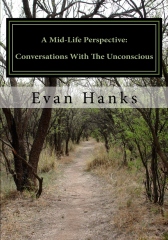Jung once wrote that it’s not so important to interpret dreams as it is to experience them. This is especially so at mid-life, when one may feel the need to make conscious emotions out of the educational stages which fortify ego into a separate identity — one stable enough to overcome its sensual illusions and confront an objective reality inside.
While it’s instructive (and somewhat flattering) to work a dream into a form acceptable to intellect, nature works over centuries to produce even smaller fruits of Eden ripe enough to be ingested by the conscious part. They attain the clarity to appear as associable ideas only by the added energy of attention. That (somewhat figuratively) is how Jung’s energic theory describes the exchange between conscious and unconscious.
A dream doesn’t stop working when something valuable is discovered in it. At mid-life, it’s only the beginning of a process designed to form a relationship, just as two strangers might establish common ground. But, the figures confronting you inside are vital parts of you who want attention doubly on that account.
They’re sometimes comforting, but at other times, too, are very contrary — even hostile — especially when they want you to inspect needful things that you may have been taught were of no importance by a backward (causal) and collective ego-worship.
At such a point, I dreamed of a small white poodle busily re-arranging my house. As I watched, I became incensed. The damn thing set up a fan in my kitchen to draw outside air in through the window — in the winter! I screamed at it: “This is my fucking house!” Yet it went right on, paying no attention to my ranting.
I associated the black poodle of Goethe’s, Faust: the supportive instinctual form of the creative force of Lucifer (the Light-bearer) yet to shine the light of consciousness onto darker conflicts. I awoke anxiously but fell back asleep. The dream continued: the white poodle was in my bed stimulating me sexually!
I considered the color white, a reference to consciousness — the opposite of unconscious blackness. I thought about Jung’s premise that sexuality symbolizes creative nature in its most profound sense — an instinctual function of relationship. When I became hostile and screamed, it was the reaction of an anxious and defensive ego being re-arranged to make room for creative (fucking) processes outside its perception.
It portended intimate relations (the bed and the sexual stimulation) with this feminine poodle (the unconscious), to compensate a rational, too-masculine ego. I saw myself as an action figure, as I was expected to be in the outer world; an actor, a worn-out Sylvester Stallone: an aging, faked-up hero-idol clinging to a moribund masculine image.
Along with other dreams, I went back to it again and again over the next two years. That was ten years ago; I couldn’t describe it symbolically then as now. But — I felt it, intuited it; able only through devotion (conscious attention) and the aid of Jung’s ideas. When I’d experienced its emotions enough to satisfy the unconscious that I was ready to move on, it changed into my black lab who’d died years before. She’d come back in my dreams!
But, her friendly form didn’t last long. Over the next year, she became threatening, snarling, biting at me. Toward the end of that dream-series, I could only ward her off on my back, with my feet (my deepest conflicts), as she attacked me viciously.
In a later dream, I explained to a shadowy figure that she’d had a psychotic episode. I had more dreams about dogs turning “psychotically” against me. Over the next year, still more dreams embraced religious ideas, and they slowly bore their core meaning into my stubborn consciousness. The dream which tipped the scale found me shouting at an old, disheveled woman in a square with a dark pond surrounded by apartments: “You’re crazy!” I screamed as she stared uncannily.
My soul, which I had accepted was of so little importance in a world of men; of power, wealth and social striving, was sick — in full rebellion of the way I treated it. I felt sick. Well, I was — but not in the way I thought…
My dreams showed me that it wasn’t she or I who was crazy; I only thought the unconscious was crazy! It reflected back to me the way I was looking at it. I saw it as crazy — which it is in the sense that it’s irrational, beyond collective judgment.
Within a year, I was writing poetry, making emotions out of the strange dreams which continue to reveal who I am — outside the ego I identified with. Three more years of intense self-analysis, guided by my dreams and Jung’s ideas, found me constructing the symbolic tale of my own inner journey. It’s as profound and insightful as the figures which lurk behind it, and though it may appear strange to the rational mindset — it is a reality.
Along with my posts, the book is one small man’s effort to shine just a little new light on its mystery. Read more about the events leading to it here, or visit Amazon.

